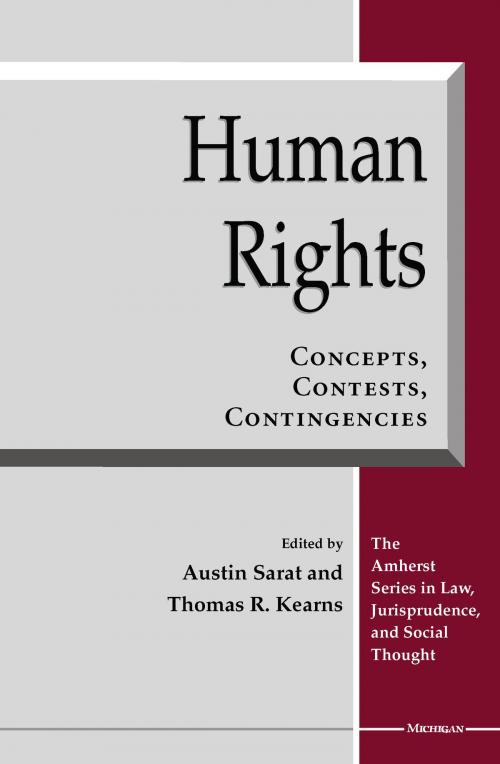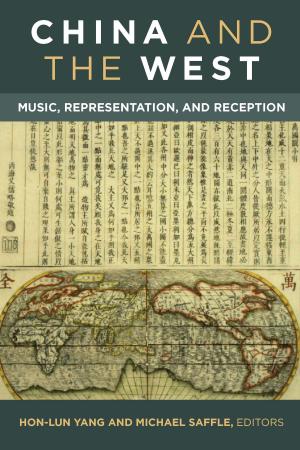Human Rights
Concepts, Contests, Contingencies
Nonfiction, Social & Cultural Studies, Social Science, Cultural Studies, Popular Culture, Anthropology, Reference & Language, Law| Author: | ISBN: | 9780472023622 | |
| Publisher: | University of Michigan Press | Publication: | November 16, 2009 |
| Imprint: | University of Michigan Press | Language: | English |
| Author: | |
| ISBN: | 9780472023622 |
| Publisher: | University of Michigan Press |
| Publication: | November 16, 2009 |
| Imprint: | University of Michigan Press |
| Language: | English |
Today the language of human rights, if not human rights themselves, is nearly universal. Human Rights brings together essays that attend to both the allure and criticism of human rights. They examine contestation and contingency in today's human rights politics and help us rethink some of the basic concepts of human rights. Questions addressed in Human Rights include: Can national self-determination be reconciled with human rights? Can human rights be advanced without thwarting efforts to develop indigenous legal traditions? How are the forces of modernization associated with globalization transforming our understanding of human dignity and personal autonomy? What does it mean to talk about culture and cultural choice? Is the protection of culture and cultural choice an important value in human rights discourse? How do human rights figure in local political contests and how are those contests, in turn, shaped by the spread of capitalism and market values? What contingencies shape the implementation of human rights in societies without a strong tradition of adherence to the rule of law? What are the conditions under which human rights claims are advanced and under which nations respond to their appeal?
Austin Sarat is William Nelson Cromwell Professor of Jurisprudence and Political Science, Amherst College. Thomas R. Kearns is William H. Hastie Professor of Philosophy and Professor of Law, Jurisprudence, and Social Thought, Amherst College.
Today the language of human rights, if not human rights themselves, is nearly universal. Human Rights brings together essays that attend to both the allure and criticism of human rights. They examine contestation and contingency in today's human rights politics and help us rethink some of the basic concepts of human rights. Questions addressed in Human Rights include: Can national self-determination be reconciled with human rights? Can human rights be advanced without thwarting efforts to develop indigenous legal traditions? How are the forces of modernization associated with globalization transforming our understanding of human dignity and personal autonomy? What does it mean to talk about culture and cultural choice? Is the protection of culture and cultural choice an important value in human rights discourse? How do human rights figure in local political contests and how are those contests, in turn, shaped by the spread of capitalism and market values? What contingencies shape the implementation of human rights in societies without a strong tradition of adherence to the rule of law? What are the conditions under which human rights claims are advanced and under which nations respond to their appeal?
Austin Sarat is William Nelson Cromwell Professor of Jurisprudence and Political Science, Amherst College. Thomas R. Kearns is William H. Hastie Professor of Philosophy and Professor of Law, Jurisprudence, and Social Thought, Amherst College.















